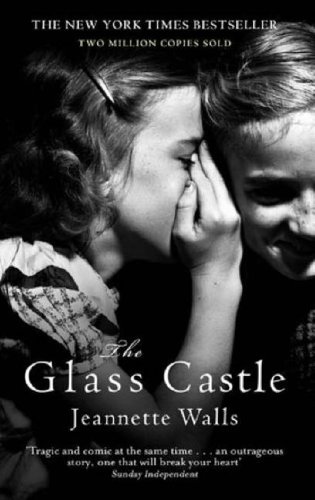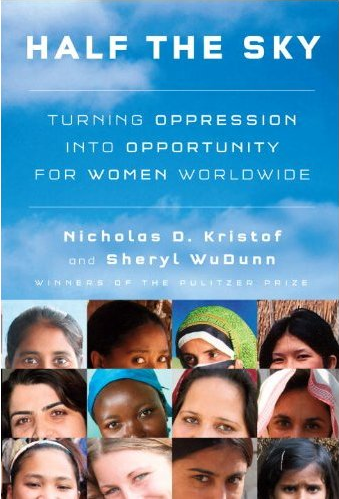As I’ve mentioned before, I love to use vacation as a time to crawl inside a good book and nestle down in its pages.
In Hawaii, I did just that, with Half the Sky by Nicholas Kristof and The Glass Castle by Jeanette Walls. These two phenomenal books (must-reads!) wove a striking thread throughout our week. In some ways they were unrelated. One is a memoir of a New York writer who grew up homeless, her addict parents leading them on innumerable “adventures” living in deserts and cars, “skedaddling” in the middle of the night when authorities came their way. The other, as I mentioned yesterday, was a text written by a married duo of Pulitzer Prize journalists, researching sex-slavery, maternal mortality, genital mutilation and gendercide.
But one commonality clearly surfaced and that was the complexity of choice. In The Glass Castle it becomes apparent that both parents have access to wealth, or at least sufficient resources to keep food on the table. But stubborn dreams, pride, ideology keep them on the “adventure,” moving from place to place trying to strike it rich on gold. In the end, the grown daughter discovers that the mother had actually inherited a significant piece of oil-rich land in Texas years prior. The land was worth one million dollars.
Why didn’t she sell? “Oh I could never let that land outside our family. You always keep things in the family.”
But she never lived on it. In fact, never even saw it.
While the issues surrounding sex-slavery and poverty certainly aren’t as simple as claiming a million-dollar piece of land, one of the startling statistics that kept arising was that over and over they found some poverty-stricken areas families did in fact have enough resources to cover the family’s basic needs. But, many men continued to spend large percentages of their incomes—often 30% or more—on alcohol and sugary drinks. The researchers would commonly visit poverty-stricken families to discover children sleeping without the $5 mosquito nets which could save them from disease. The husband spent $5/week on alcohol. This was, in fact, exactly what happened to Jeanette Walls’ family growing up in America. When her mother did work, as a schoolteacher, her father would spend every last dime on liquor and cigarettes.
Neither book bashed men; the point is not that men are lousy. But, it does prove (again!) that the bottom line often is that poverty is not a lack of resources but a foolish allocation of resources. It’s easy to wag a finger at Africans spending their last dollar on alcohol while their children die of malaria.
Are our choices any better?
Just a few weeks ago I sat with a dear girl, my age, with three small children, who is literally dying of diabetes. But, she cannot quit eating sugar and can’t make herself exercise. Her doctors are pleading with her to save her life, but she is enslaved to poor choices. And I would venture to say that most (not all) many Americans are enslaved as well. We know we should save money but we don’t. We know we shouldn’t go in debt but we do. We know we shouldn’t overeat but we do. The African man probably knows he should choose mosquito nets over banana beer … but doesn’t.
The overwhelming feeling I had when I finished both books was that I felt sickened by my culture and yet enslaved to it all at once. We are entrenched in a culture of over-consumption and overindulgence, of pride and greed. I can wag my finger at the African man but we make the same poor choices every day.
Our only hope for change is to change. Our only hope for the world to be changed is if we are changed first. And while I wholeheartedly support relief organizations providing food, supplies, medical attention, and awareness, we must remember that true change can only happen from the inside out.
Only God can change what we want. Only He can make us want to buy our children the mosquito nets instead of the alcohol.
We’re going to be talking here about change for a bit … will you join me? Let’s ask Him to for the strength to choose change.
{Thanks for reading.}
4 thoughts on “Choosing to Change”
Comments are closed.




wasn’t the glass castle good? oh i just loved that book! and as much as i’ve been a little timid to read half the sky – i think you’ve inspired me to take the plunge 🙂 thanks for the reviews.
“Our only hope for change is to change”. Amen! Prayin’ for change! 🙂
I have some good reading ahead of me, I see… And wow, what you’re saying about change. Yes! I love it; can’t wait to read more!
Can’t wait to hear more about change, well put as always Kari! Thank you!